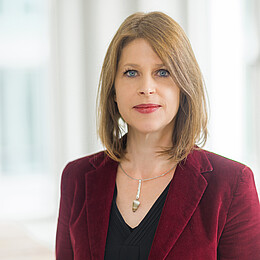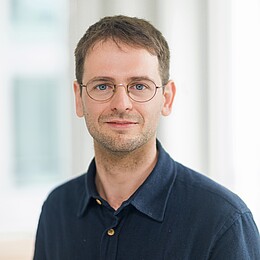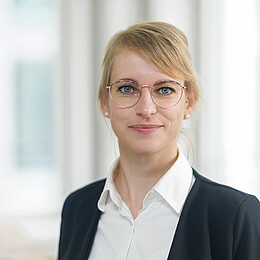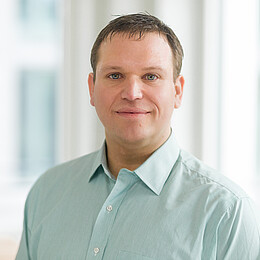SPARK-BIH: The Bridge Between Research and Clinical Application in Gene and Cell Therapies
SPARK-BIH is where breakthrough science becomes real-world impact. Founded in Berlin in 2015 as the first European site of the highly successful SPARK program developed at Stanford University in 2006 (https://sparkmed.stanford.edu/), it has been part of the Berlin Institute of Health (BIH) at Charité since 2018. As the European hub of the global SPARK network, our program provides comprehensive support throughout the entire translational value chain, empowering innovators to advance scientific discoveries into viable, scalable, and patient-centric therapies.
As part of Germany’s National Strategy for Gene- and Cell-Based Therapies, SPARK-BIH plays a pivotal role in accelerating the development of next-generation therapies, improving patient outcomes, and creating impact for society and economy. SPARK supports inventors in overcoming the “Valley of Death”, the critical gap that keeps scientific breakthroughs from reaching patients, thereby advancing translation effectively.
Our program is designed to de-risk innovation, accelerate translation, and prepare academic inventors for clinical validation and commercial growth. Through milestone-based funding, expert industry mentorship, and direct access to an extensive international network of investors, entrepreneurs, and experts, SPARK-BIH transforms cutting-edge science into therapies with real-world patient impact.
Tailored Support for Innovative Projects
SPARK-BIH offers flexible, milestone-based funding for consumables and personnel in two tracks:
- Track 1 supports projects in early development phases with funding of up to €50,000 over a period of maximum 12 months.
- Track 2 supports more advanced projects with an existing patent application or invention disclosure, offering funding of more than €50,000 over a period of up to 24 months.
In addition to financial support for personnel and consumables, funded teams receive tailored mentoring from an interdisciplinary expert network, along with access to practical workshops and webinars on topics such as intellectual property, regulatory requirements, and business development. By providing opportunities for practical education and targeted skill-building, we ensure that funded teams are well-prepared to navigate the path from discovery to effective translation and successful commercialization.
Overcoming the “Valley of Death” Through the SPARK Method
A recent Nature Biotechnology study underscores a hard truth: the biggest bottleneck in biotech is not discovery, but translation. This challenge is exactly what SPARK-BIH was designed to address. Our program is purpose-built to accelerate progress at the critical intersection of research and clinical application — the point where too many promising therapies fail.
Our model is built around three core drivers of success:
- Milestone-based execution – A structured approach centered around clearly defined measurable goals that guide project development through each critical stage. By tying the progress to specific milestones, projects are kept on track and resources, especially capital, are allocated efficiently.
- Interdisciplinary mentoring – Funded teams gain direct access to a diverse network of mentors with deep expertise across key domains, including regulatory affairs, clinical development, financial strategy, and entrepreneurial expertise. This tailored guidance enables participants to navigate the complex landscape of gene and cell therapy from multiple perspectives.
- Education – Lecture series designed to bridge the knowledge gap between academia and industry, featuring expert-led sessions on critical aspects of gene and cell therapy, including R&D, intellectual property, manufacturing, clinical trials, market analysis, spin-offs, fundraising, and much more. In addition, workshops provide hands-on experience that reinforces practical skills and fosters the development of critical soft skills, such as delivering an effective pitch and creating a Target Product Profile (TPP).
This approach has a proven track record: SPARK-BIH has supported over 85 projects, resulting in the successful launch of 12 spin-offs, such as MyoPax, EpiBlok Therapeutics, and Captain T Cell. Many of these projects have secured significant follow-on funding, enabling advancement into clinical trials. In 2025, SPARK-BIH onboarded 14 new projects spanning pharmaceuticals, diagnostics, and medical technology, demonstrating its ongoing impact in helping projects cross the “Valley of Death” and accelerating the transformation of breakthrough science into therapies that reach patients faster.
Selection Process: Rigorous and Transparent
SPARK-BIH applies a structured selection process to identify and support the most promising projects. Applicants submit a project outline, which is evaluated on scientific quality, innovation potential, feasibility, and clinical relevance.
Reviews are conducted with strict conflict-of-interest safeguards to ensure impartiality. This process guarantees a fair and objective selection of high-impact assets with the strongest potential to advance the development of improved therapies for patients.
Globally Connected – Nationally Anchored
As part of the global SPARK network, SPARK-BIH opens access to international events, partners, investors, and experts. This fosters the exchange of translational knowledge and experience, strengthens collaborations, and enables the scaling of successful projects across borders.
Click here for the SPARK-BIH National GCT Booklet with more detailed information about the SPARK-BIH National GCT program, our SPARKees and their translational projects.
Click here to see the funded projects.
The Team


Dr. César Cordero Gómez
Project Manager National Strategy for Gene- and Cell-Based Therapies

Dr. Josephine Kemna
Project Manager National Strategy for Gene- and Cell-Based Therapies

Dr. Sharesta Khoenkhoen
Project Manager National Strategy for Gene- and Cell-Based Therapies

Dr. Stefan Köster
Project Manager National Strategy for Gene- and Cell-Based Therapies
![[Translate to englisch:] [Translate to englisch:]](/fileadmin/_processed_/5/4/csm_Marialucia_Massaro_4e3288f36d.jpg)
Dr. Marialucia Massaro
Project Manager National Strategy for Gene- and Cell-Based Therapies